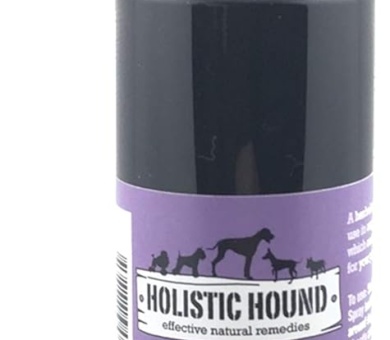Spring into Health: Supplements to Combat Dog Allergies This April 2025
As April 2025 blossoms, so do seasonal allergens that can turn this vibrant season into a sneezy, itchy ordeal for our canine companions. Just like humans, dogs suffer from springtime allergies, reacting to pollen, mold, and grasses. While vet visits and medications are crucial, supplements can play a supportive role in alleviating symptoms. Here’s your guide to helping your dog thrive this spring with science-backed supplements and holistic strategies.
Understanding Spring Allergies in Dogs
Seasonal allergies in dogs often manifest as atopic dermatitis, an inflammatory response to environmental triggers. Common symptoms include:
- Excessive scratching or licking
- Red, inflamed skin or hot spots
- Watery eyes and sneezing
- Ear infections or paw chewing
Identifying these signs early allows for timely intervention, reducing discomfort and preventing secondary infections.
Top Supplements to Support Allergy-Prone Dogs
1. Omega-3 Fatty Acids
How they help: EPA and DHA in fish oil reduce inflammation and strengthen the skin barrier, minimizing reactions to allergens.
Sources: Salmon oil, krill oil, or algae-based supplements (for vegan options).
Dosage: Varies by weight; consult your vet. Generally, 20-55 mg combined EPA/DHA per pound of body weight daily.
2. Quercetin
How it helps: A natural bioflavonoid acting as an antihistamine and anti-inflammatory. Often called “Nature’s Benadryl.”
Sources: Found in apples and blueberries, but supplements provide concentrated doses.
Tip: Look for canine-specific formulas paired with bromelain for enhanced absorption.
3. Probiotics
How they help: Gut health is linked to immune function. Probiotics balance gut flora, potentially reducing hypersensitivity.
Strains to seek: Lactobacillus rhamnosus and Bifidobacterium animalis are studied for allergy relief.
Form: Powders or chewables; opt for products with prebiotics for synergy.
4. Colostrum
How it helps: Rich in antibodies, bovine colostrum modulates the immune system and soothes gut lining, which may decrease allergic responses.
Dosage: Typically ½ tsp daily for small dogs, up to 1 tbsp for larger breeds.
5. Vitamin E
How it helps: This antioxidant protects skin cells from oxidative damage caused by inflammation.
Sources: Supplements or vitamin E-rich foods like spinach (in moderation).
6. CBD Oil
How it helps: Cannabidiol (CBD) may reduce itching and anxiety linked to allergies. Ensure it’s THC-free and third-party tested.
Holistic Tips for Allergy Management
- Grooming: Bathe your dog weekly with hypoallergenic shampoo to remove pollen.
- Diet: Incorporate anti-inflammatory foods like turmeric or pumpkin.
- Environment: Wipe paws after walks, and use HEPA air filters indoors.
Consult Your Vet First
Always discuss supplements with your veterinarian to avoid interactions with medications and tailor dosages. Blood tests can identify specific allergens, enabling targeted care.
The Takeaway
April 2025 is the perfect time to fortify your dog’s health against seasonal allergies. By combining supplements like omega-3s, quercetin, and probiotics with proactive grooming and dietary adjustments, you can help your pup enjoy spring with fewer sniffles and more tail wags. Remember, a partnership with your vet ensures safe, effective care tailored to your dog’s unique needs.
Embrace the season—your dog’s comfort is worth it! 🌸🐾
Keywords: dog allergies, spring allergies in dogs, supplements for dog allergies, April 2025 pet care, natural antihistamines for dogs
This article blends practical advice with evidence-based solutions, empowering dog owners to take a proactive approach to seasonal allergies while emphasizing safety and veterinary collaboration.









